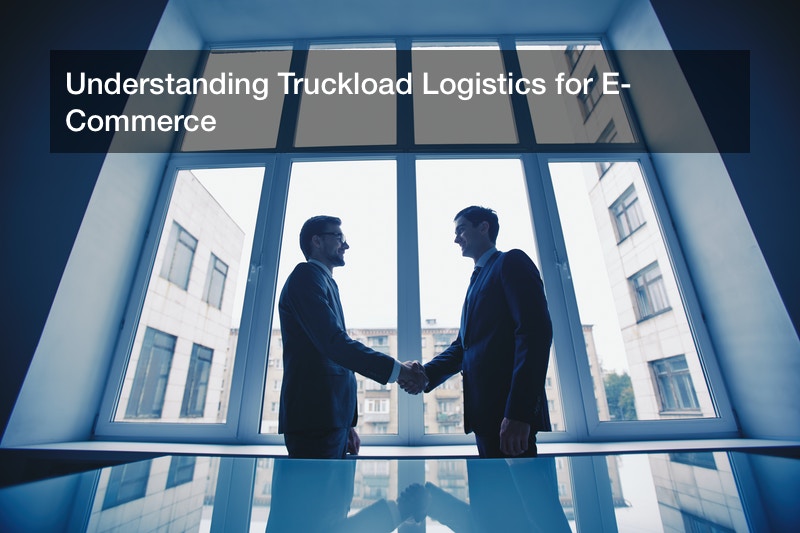
From trade show shipments to refrigerated food deliveries, truckload logistics are integral to businesses around the world. Without truckload carriers, grocery stores wouldn’t stock their shelves, medical centers wouldn’t get the equipment they need, and factories wouldn’t have any way to transport their goods. But how are truckload logistics important if you own an e-commerce business?
To learn how truckload freight can apply to e-commerce, keep reading.
Truckload Logistics, E-Commerce, and the Economy
Freight shipping companies empower businesses to transport large quantities of merchandise and cargo. This kind of transaction usually takes place between a freight broker and a merchant with goods to sell, such as an e-commerce business owner. Shipment sizes can include less-than-truckload, or LTL; partial truckload, or PTL; and full truckload, or FTL. If you thought e-commerce businesses only relied on parcel delivery services, like the mail, think again. Although an e-commerce entrepreneur probably wouldn’t need an entire truck for most deliveries, less-than and partial truckload services can be very important to scaling a business.
Though it may seem behind-the-scenes, the fright industry is one of the largest contributors to the overall health of the United States economy. And while e-commerce transactions may be less common than in-store purchases, they are a large and growing part of business in the US. E-commerce revenue is around $423.3 billion, and it’s climbing steadily. Whether through truckload, less-than-truckload, or parcel services, freight carriers of all types are being forced to catch up with this relatively new industry.
Freight Shipping Qualifiers
In order to qualify for freight shipping, your shipment must meet a minimum size or weight requirement. This may vary from one freight carrier to another, but a good rule of thumb is to be larger than 30”x30”x30”, or heavier than 150 lbs. If your shipment falls below these dimensions, it might be more cost-effective for you to ship through a standard parcel delivery service.
Your freight shipping service may have certain restrictions on products they are able to ship. It’s fairly common for businesses to ship auto parts, electronic devices, batteries, clothing and textiles, and merchandise on skids or pallets. If your products fall within these categories, it’s probably safe to assume that most freight companies will be willing to work with you. If your shipments involve hazmat chemicals or temperature-controlled foods, however, you may have to look for a specialized shipping service that works with such goods regularly.
Freight Load Sizes
In order to serve businesses effectively and flexibly, most freight companies will offer the following two load sizes:
- Full truckload (FTL): As its name suggests, FTL’s are shipments that have a large volume or weight. They require an entire truck bed by themselves to transport safely. These shipments will typically weigh between 10,000 and 45,000 lbs.
- Less-than-truckload (LTL): Unlike full truckload shipments, items shipped in LTL freight don’t have to occupy an entire truck by themselves. They often weigh between 200 and 10,000 lbs.
Depending on your fright company, additional shipping types may be available, such as partial truckload (PTL) and intermodal freight.
While not all e-commerce businesses will rely on truck freight all the time, it’s important to be informed about the various ways to do business and transport your merchandise. Hopefully this article has answered your questions about truckload logistics for e-commerce.
